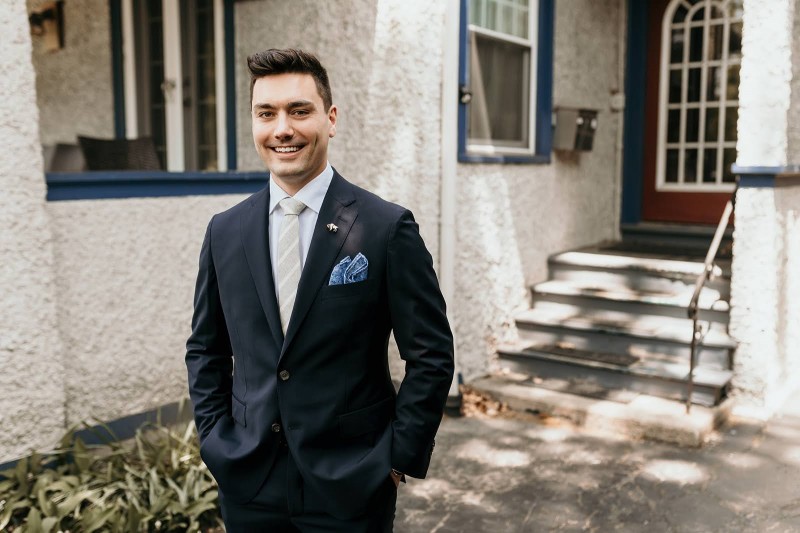The New York State Board of Regents has a broad range of responsibilities, overseeing both the State University of New York and the New York State Education Department. Its work impacts everyone from kindergarteners to state archivists, professionals renewing certifications to people with disabilities seeking to live independently.
It would be easy to view the Regents as modern in origin, emerging from an increasingly complex and bureaucratic state government. Easy — and incorrect.
Founded in 1784, the Board of Regents is 240 years old—almost as old as the United States itself, according to Zachary Deibel, who recently earned his doctorate in history from Binghamton University. His dissertation, “The Subjects of the State: Learning, Empire, and Revolution in Eighteenth-Century New York,” explores the history of learning itself as a key component of the American Revolution as it played out across the state.
“As a former social studies teacher, I was interested in the history of education and its connection to American politics and the difference between student learning and the formal curriculum,” he explained.
A native of Buffalo, Deibel majored in history at American University and then headed to rural northeastern Arkansas through the Teach for America program. For the next three years, he taught high school social studies.
After completing his master’s degree at Arkansas University, he moved to Columbus, Ohio, where he taught U.S. government and history for four years. While there, he helped facilitate opportunities for students to apply their learning about the past in debates, discussions and simulations that sometimes took students to the state capitol or the district courtroom.
As a teacher, he saw firsthand how education was often tied to political debates, ranging from heated discussions over the Common Core curriculum to book bans. He wondered: Why is teaching so political in the United States? How did it get that way?
Back home in New York state, he pursued the answer to that question through his doctoral studies. He began his program in 2020 when Binghamton was fully remote during the coronavirus pandemic — a period that saw heightened political tensions nationwide over how education should be carried out during a public health crisis.
Exactly what and how students should learn was a subject of political discussion dating back to the British imperial government and colonial authorities, Deibel said.
“In the 18th century in New York state, there was a long history of the politicization of knowledge,” he said. “For New Yorkers of all backgrounds, learning—not just education—was intensely political.”
Even in those days, the state was complex and diverse, making it a fascinating topic for study. The Dutch had lived in New York for several generations before the region became part of the British colonies; the future state was also influenced by the French and home to one of the most powerful Indigenous populations in the region. New York society also included a broad array of social classes, from slaves and laborers to aristocrats.
Different state authorities addressed aspects of the learning process, which didn’t always take place in a schoolhouse. Colonial government, for example, regulated how surveyors should be trained and practice their profession. Many trades were taught through apprenticeships, from milliners to carpenters, blacksmiths, merchants and more. Their ranks included women, slaves, free Blacks, children and young men.
Established in 1754, King’s College — known today as Columbia University — is New York’s oldest institution of higher education. In 1784, it became the birthplace of the Board of Regents, which oversees all aspects of learning, from colleges to the trades. Impulses toward greater political engagement with learning characterized both institutions, even though Britons established the former to secure imperial control and patriots chartered the latter to instill republican ideology across the state.
The early advent of the Board of Regents demonstrates a surprising truth: the regulation of education was a top state priority, even in the tumultuous early days of a new nation. And, for all the revolutionary ideas, conversations about the American education system mirrored those happening in the British Empire.
That said, outside of the halls of power, people’s own lived experience of education shifted slowly.
“An apprentice in 1750 and an apprentice in 1780 would have both been taught their craft in the context of much wider political messages prescribed by those in power,” said Deibel, who recently accepted a position as an assistant professor at the Virginia Military Institute, where he will teach early American history.
We tend to view politics in education in terms of the current culture war, with its tangle of perceived virtue and patriotism. But state government has long been involved in education, both in terms of public funding and regulation — both inherently political mechanisms.
“We should understand that learners and their governments have been engaged in a long conversation about the nature of education and politics alike,” Deibel said.
Learning about the founding of the United States has always required, at least in part, a clear understanding of the importance of learning at the founding. Eighteenth-century efforts to educate subjects and citizens on the tenets of imperial order or the principles of revolutionary politics sparked the long history of civic education as a broadly constructed, contentious and discursive historical process.
“However unique recent disputes over history and education may seem, debates over knowledge, learning, and history have always been a fundamental component of the American historical and educational experience,” he said.










